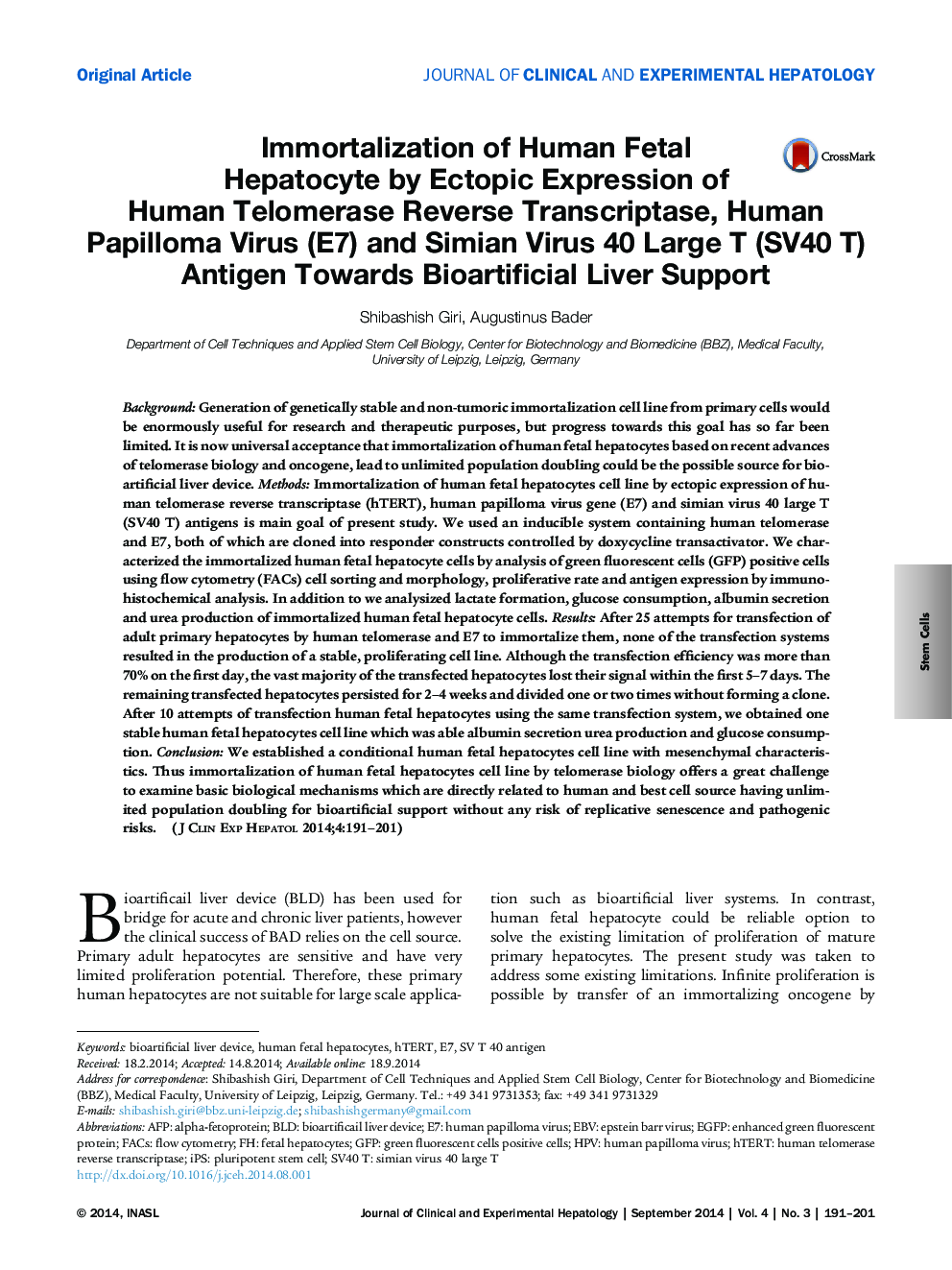| کد مقاله | کد نشریه | سال انتشار | مقاله انگلیسی | نسخه تمام متن |
|---|---|---|---|---|
| 3339292 | 1213905 | 2014 | 11 صفحه PDF | دانلود رایگان |

BackgroundGeneration of genetically stable and non-tumoric immortalization cell line from primary cells would be enormously useful for research and therapeutic purposes, but progress towards this goal has so far been limited. It is now universal acceptance that immortalization of human fetal hepatocytes based on recent advances of telomerase biology and oncogene, lead to unlimited population doubling could be the possible source for bioartificial liver device.MethodsImmortalization of human fetal hepatocytes cell line by ectopic expression of human telomerase reverse transcriptase (hTERT), human papilloma virus gene (E7) and simian virus 40 large T (SV40 T) antigens is main goal of present study. We used an inducible system containing human telomerase and E7, both of which are cloned into responder constructs controlled by doxycycline transactivator. We characterized the immortalized human fetal hepatocyte cells by analysis of green fluorescent cells (GFP) positive cells using flow cytometry (FACs) cell sorting and morphology, proliferative rate and antigen expression by immunohistochemical analysis. In addition to we analysized lactate formation, glucose consumption, albumin secretion and urea production of immortalized human fetal hepatocyte cells.ResultsAfter 25 attempts for transfection of adult primary hepatocytes by human telomerase and E7 to immortalize them, none of the transfection systems resulted in the production of a stable, proliferating cell line. Although the transfection efficiency was more than 70% on the first day, the vast majority of the transfected hepatocytes lost their signal within the first 5–7 days. The remaining transfected hepatocytes persisted for 2–4 weeks and divided one or two times without forming a clone. After 10 attempts of transfection human fetal hepatocytes using the same transfection system, we obtained one stable human fetal hepatocytes cell line which was able albumin secretion urea production and glucose consumption.ConclusionWe established a conditional human fetal hepatocytes cell line with mesenchymal characteristics. Thus immortalization of human fetal hepatocytes cell line by telomerase biology offers a great challenge to examine basic biological mechanisms which are directly related to human and best cell source having unlimited population doubling for bioartificial support without any risk of replicative senescence and pathogenic risks.
Journal: Journal of Clinical and Experimental Hepatology - Volume 4, Issue 3, September 2014, Pages 191–201